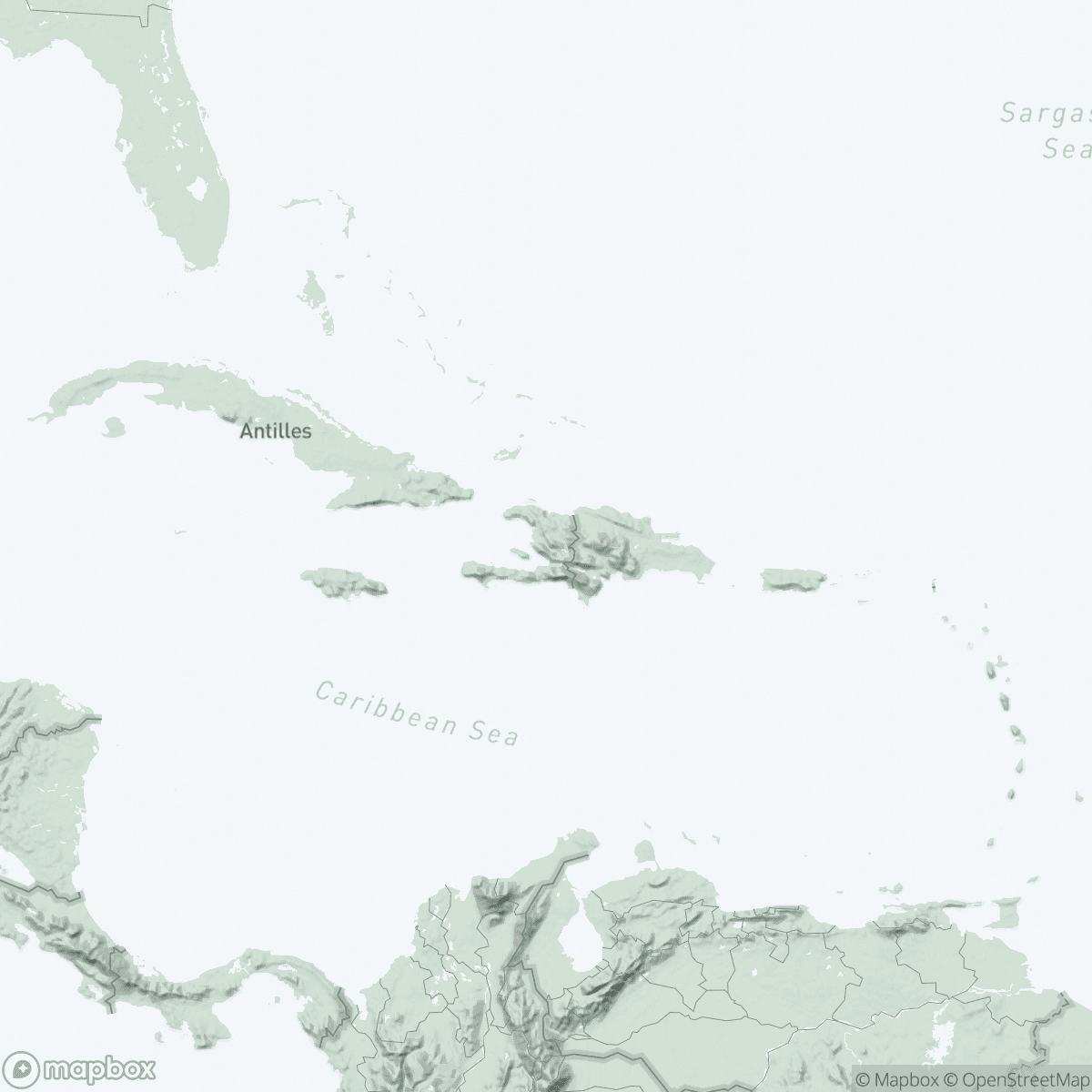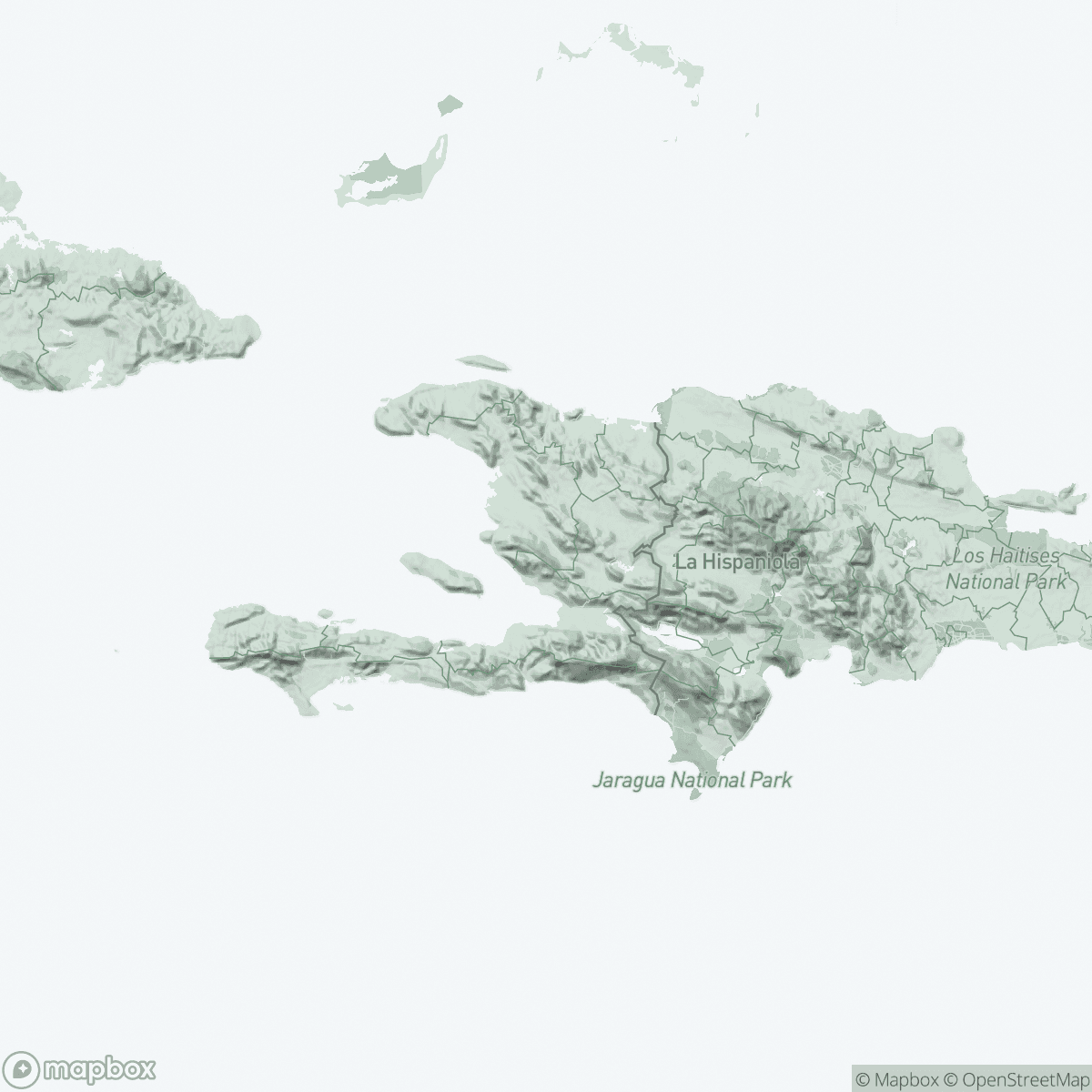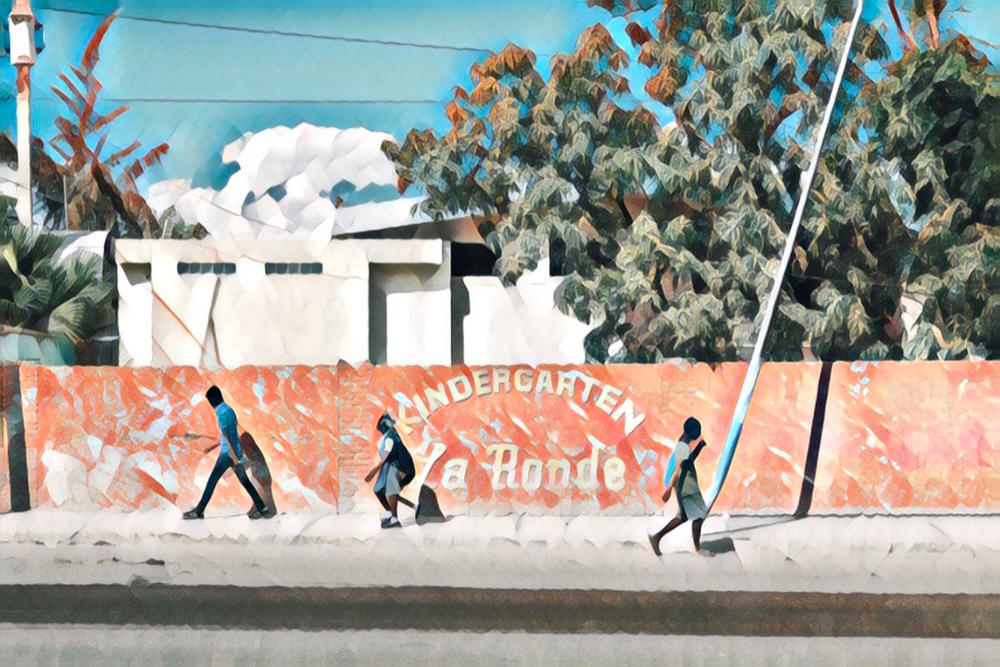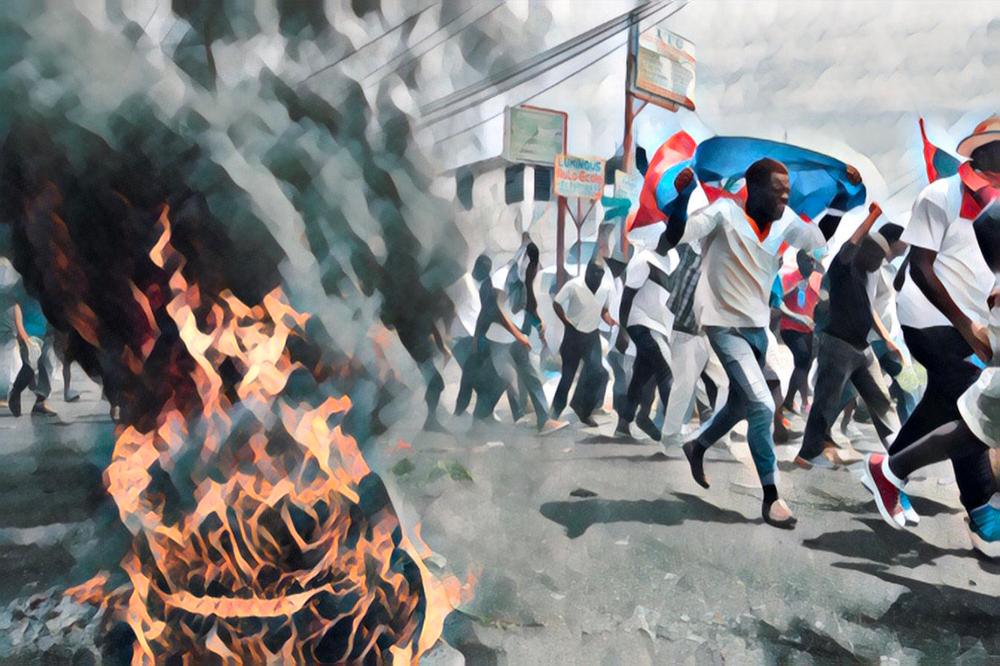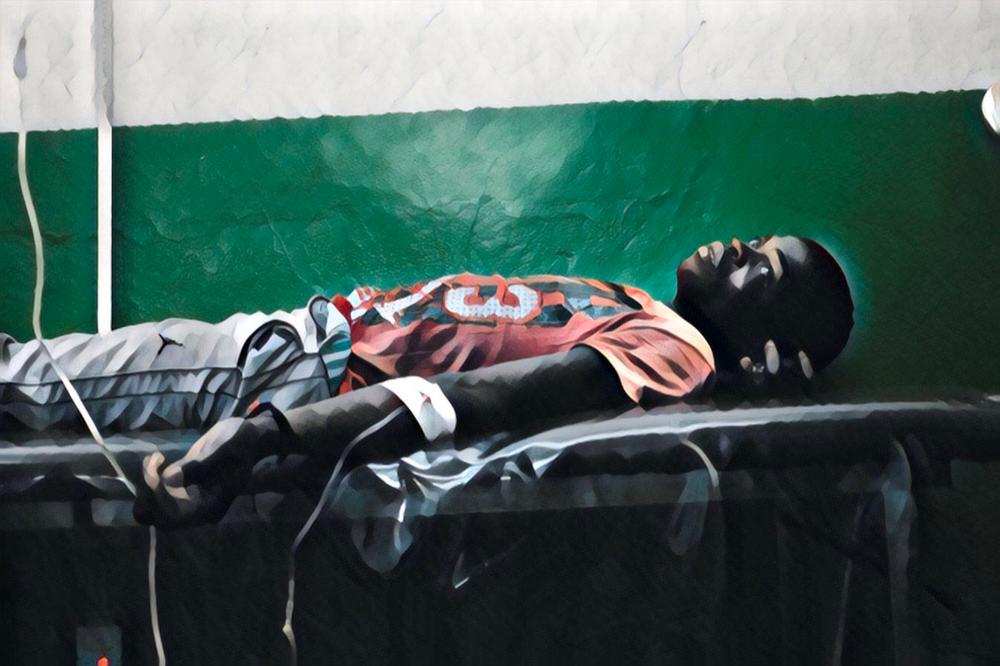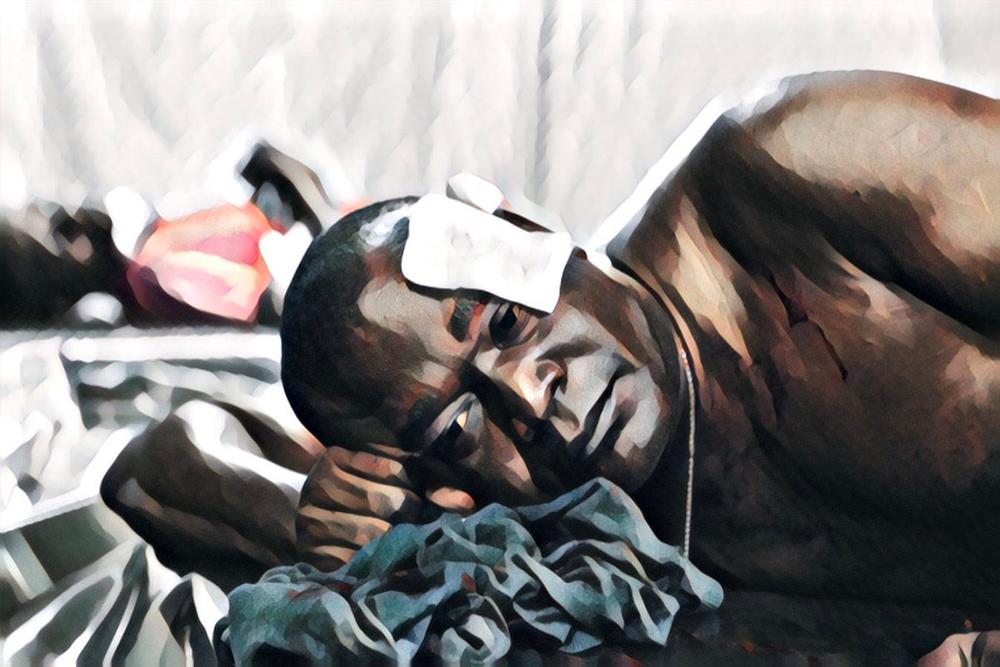
In Port-au-Prince “we’re surviving, not living”
In 1 click, help us spread this information :
In early May, 188 people lost their lives and around 100 were wounded in fighting between armed groups in Port-au-Prince. An estimated 17,000 residents were also forced out of their homes. MSF’s hospital in Tabarre, which specialises in trauma and burn treatment, saw bed occupancy surge, with 96 patients requiring treatment for gunshot injuries, while ambulances struggled to reach several of the city’s neighbourhoods to assist the wounded.
Violence is now a daily reality for people living in hellish conditions amid armed groups in the Haitian capital. More and more heavily armed groups are fighting for control of roads and Port-au-Prince neighbourhoods.
Surge in kidnappings
The kidnapping trade is running at full tilt, as is the levying of taxes on almost all activities – markets, churches, businesses and even hospitals – that generate income for local communities. During the first three months of 2022, CARDH (centre d’analyse et de recherche en droits de l’Homme) identified 225 kidnappings, up 58.45% from the same period in 2021.
For the past two years Natalie* has worked in one of MSF’s Port-au-Prince hospitals. Her car journey between home and work is a constant source of anxiety. “I’m scared I’ll be robbed of course, but much more of being kidnapped,” she says. “Every time I leave home, I prepare myself physically and mentally. I tell myself it could happen and wear baggy clothes so that I’ll be comfortable if I’m kept prisoner somewhere for several days.
Most kidnapped women are raped, which terrifies me too.”
To reduce the risks involved in getting to and from work, MSF has introduced 24-hour shifts in its facilities. "It’s tiring, but less risky," continues Natalie. Rosanberg, who also works for MSF, agrees. Several times in April she couldn’t get to the hospital due to fighting and heavy gunfire in the street. “It takes 45 minutes to walk when I can't find transport," she explains. “Sometimes, because of the fighting and blockaded roads, it can take over two hours. It's the same for my eldest child who can’t even get to the university."
Originally from Gonaives, the mother of four is the family’s sole breadwinner. Her pay is barely enough to pay for school fees and food – mainly rice, occasionally potatoes, bananas or yams. Dinner is no longer part of the daily routine, and neither is meat because it costs too much. Rosanberg continues, “We’re surviving, not living because all the time we’re stressed and scared. Life’s really tough.” For a while the family lived in Cité Soleil, the largest slum in Port-au-Prince, before being forced to flee to Croix-des-Bouquets, which she says is now ‘bandits central’.
Inflation and a broken government
Murders, kidnappings, extortion, police brutality…. All this violence is taking place while Haiti is in the grips of a deep economic and political crisis. Since July 2018, increasingly violent protests, due in part to the fuel crisis, have been held across the country.
Amid the chaos, in 2019, MSF re-opened its Tabarre hospital, which gave the poorest communities better access to health care. Unable to afford medical treatment in health centres lacking medical personnel, people have also had to contend with repeated public hospital strikes.
Ugo is among those who have been held up on the way to work at the hospital. “It’s not the rich who get attacked, but ordinary people like me who are trying to earn a living.”
A large calibre weapon pointed at him, they stole everything he had. “I gave up hope,” he remembers. “I thought I was going to die. I felt like I was their enemy. When they let me go, I went to work and described what happened to me. We see terrible things every day, people getting killed, burnt to death right on the street.”
To avoid going through Martissant – a dangerous district controlled by armed groups – he now has to leave home at dawn and walk across the mountain. “Leaving early is riskier because the streets are empty, which is really dangerous. I often arrive late, sometimes because I just can’t get through the gunfire. It affects us financially and physically. It’s exhausting.”
A single father of four, his youngest child is just 10 weeks old. Every day, as he goes back and forth to his family, he puts his life in danger.
We’re like civilians on a battlefield, nobody respects anyone.”
With only 10 senators in office, Haiti’s government is in the grips of a major economic and social crisis. Between November 2021 and March 2022, the cost of transport jumped 92% and basic necessities, such as water and food, have seen similar price hikes. In March 2022, inflation reached almost 26% – a huge increase when close to 60% of Haiti’s population are struggling to survive on the equivalent of 2 dollars a day.
Fleeing the extreme violence
Ugo and Morjorie, who also works for MSF, know many people who have decided to flee Haiti. According to OCID (Observatoire Citoyen pour l'institutionnalisation de la démocratie en Haïti), more than 82% of Haitians want to leave the country, to go to the Dominican Republic or the US.
“There are no young people left in my district”, Ugo says several times. Morjorie recalls a 50 year-old lady “and her lovely house and small garden in Tabarre” now living, undocumented and destitute, in extreme hardship and misery in the US. “She shut the door and never came back.”
After President Jean-Bertrand Aristide’s removal from office in 2004, Marjorie also left her home in Martissant and moved to Lalue, a quieter neighbourhood less prone to violence.
When the earthquake destroyed her home in 2010, the family moved once again, to Delmas, another district in Port-au-Prince. “When I arrived in Port-au-Prince, I lived in a neighbourhood near Martissant”, she remembers. “I had my two eldest kids in Martissant. Back then it was totally different. Life was much easier.”
Ugo and Morjorie share the same dream for their children, that they finish their studies safely in some other country, far from the horrific violence and poverty. “I want to stay in my country. I want to stay because I have faith that one day things will change,” concludes Ugo.
*All names have been changed
